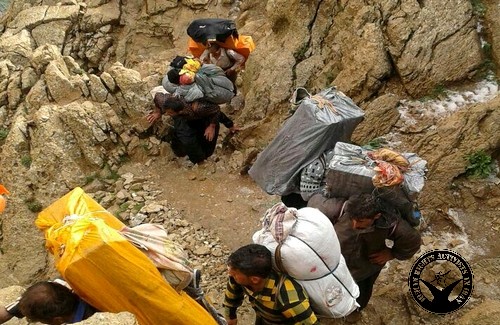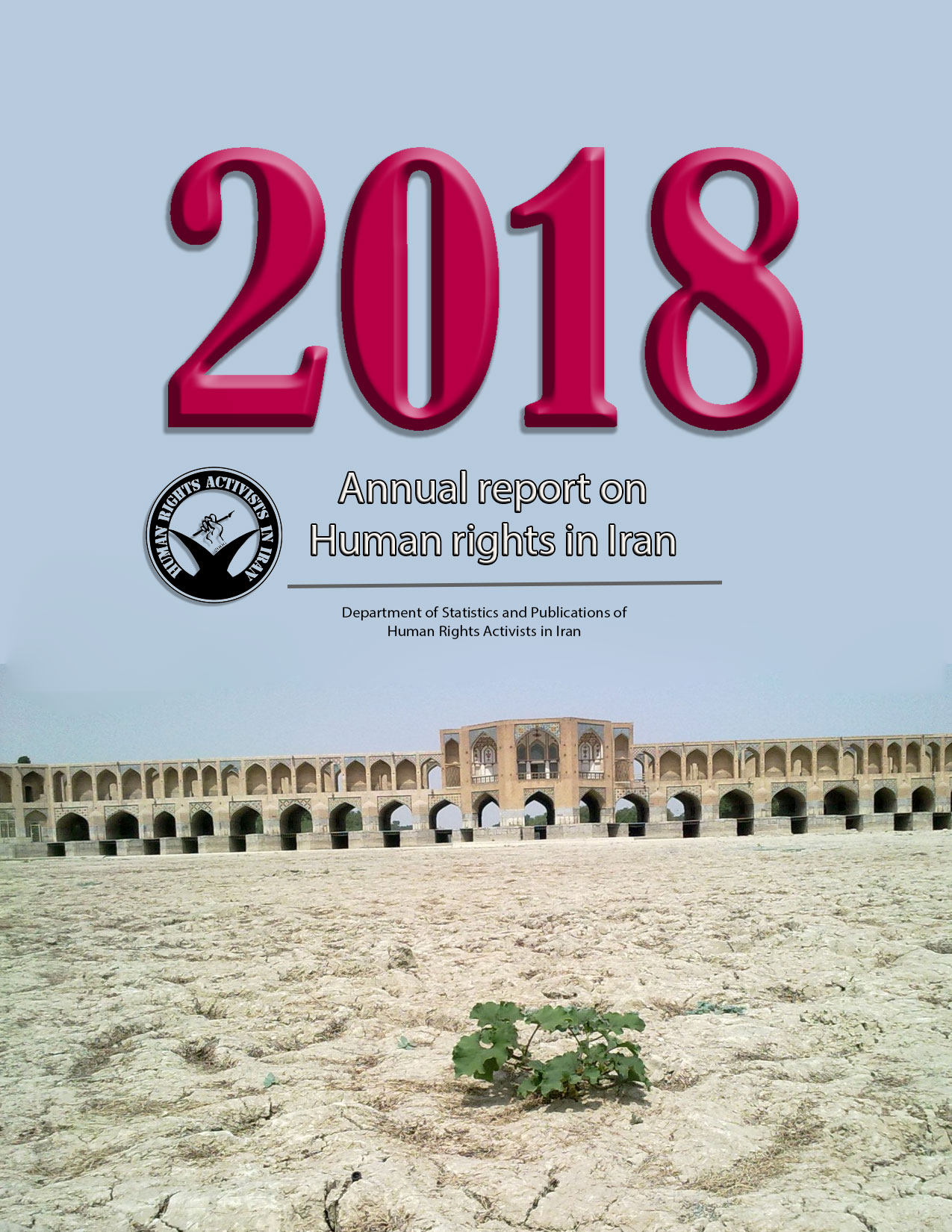The following is an
overview of human rights violations in Iran on February 8th, 2019 based on the
information compiled and verified by Human Rights Activists News Agency (HRANA).
(1) A number of Kulbars (Kurdish back carriers) have been shot by border patrol in Sardasht and Baneh in West Azerbaijan province. Saman Bakhshi, Mehdi Faroughzadeh, and Arman Felahati were injured. In 2018, 152 Kulbars were killed or injured in Iran.
(2) Two alleged poachers have been arrested in Khomeyn on Thursday, February 7th. The Khomeyn county has 11 natural habitat and is located in Markazi province.
(3) Omran Gholam Khosravi was executed in Maragheh on January 29th. According to Kohgiluyeh and Boyer-Ahmad’s prison chief, 11 prisoners accused of murder have been spared from hanging on gallows by consent of next of kin in this province, in 2018.
(4) Prison guards beat prisoners and used tear gas in the Shahr e-Rey prison (Gharchak). The unrest began when some prisoners protested the fact that their names were not on a list of the pardoned prisoners for the 40th anniversary of the Islamic Revolution.
(5) Four people were sentenced to prison in Piranshahr and Quchan on the charge of “cooperation with a Kurdish opposition group”. Mansour Farajzadeh, Soleiman Mohammadnejad, Bapir Barzeh, and Ahmad Ghalatehrash were sentenced to two and a half year, combined.
(6) A detained Lebanese citizen, Nazar Zaka, who was held in the solitary confinement of Islamic Revolutionary Guard Corps Detention Center began a hunger strike to protest his illegal arrest. He was sentenced to 10 years in prison and paying 200 thousand dollars fine on espionage-related charges.
(7) A labor activist, Behnam Ebrahimzadeh, has been detained for two months, although his family provided his bail bond which has been set for 200 million Toman [approximately 20 thousand USD]. He was apprehended “en route to assist survivors of the Kermanshah earthquake.” He had been released from prison last year after finishing his seven years sentence.
(8) Esmail Bakhshi’s lawyer, Farzaneh Zilabi, was summoned to Shush Revolutionary Court. Bakhshi spoke out about abuse and torture he suffered in detention. He has been rearrested and is at risk of torture.
(9) A Kurdish poet, Hossein Bagheri known as Jakan Baran’s court was in session on Monday, February 4th. He was charged with ‘propaganda against the state and blasphemy’. He is unable to walk and lost his right kidney.
(10) Several residents of Molashiyeh and Shadegan were arrested in Khuzestan province, during the last week. HRANA has been able to obtain the identities of 27 of them: Abdolrahman Shilavi, Habib Badr Mansouri, Malek Jial Heydari, Hamoud Shalibavi, Ghazi Shalibavi, Yousef Shalibavi, Heyar Shalibavi, Rasoul Shalibavi, Ali Shalibavi, Taleb Shalibavi, Hakim Doris, Jasem Khanafri, Syed Khalil Taheri Mousavi, Abdolazim Acharsh, Risan Shalibavi, Abdolnabi Shalibavi, Rasoul Al-bokhanafi, Rasoul Al-bokhazir, Salman Albokhazir, Seyed Ebrahim Taheri Mousavi, Mohammad Jonami, Saad Shadverdi, Taleb Shalibavi, Adel Maniavi, Ali Maniavi, Javad Shouiji, and Kazem Shouiji.







